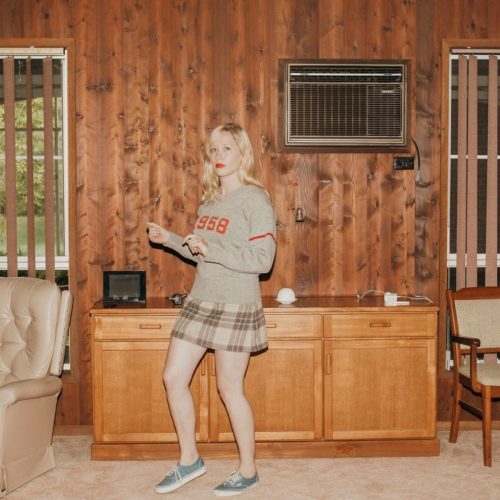In her new single, “Lydia Wears A Cross,” Julia Jacklin dives deep into her childhood experiences with religion and challenges the institution she grew up in. She speaks on bittersweet memories, which seem to be the most valuable things she got from these experiences. With a vibrant music video that is just as beautiful as the song, this is a track to add to your summer playlist.
The song is on the more descriptive side, something I admire in songwriting. I love it when an artist is so detailed with their words that I can visualize the scenes from the song. In every line she is giving us mental snapshots into her childhood, making it easier to relate to her.
Vivien’s holding on / But singing every single word wrong / On the parade float / Just a child in a leotard beneath a Technicolor dreamcoat
Prior to these lines, the memories Jacklin sings about seem relatively positive. It’s as if she is just having a moment of nostalgia. However, it’s in these lines that we get a glimpse into what she really thinks. These lines indicate that she may feel like her and her peers were indoctrinated into something that they never truly understood. We see a similar sentiment in earlier lines: “I felt pretty / In the shoes and the dress / Confused by the rest could he hear me?”
It seems like she enjoyed the aesthetics of her religion, but it was all performative in the end. She didn’t understand it when she was little, and when she grew up to understand it she didn’t believe it.
I’d be a believer / If it was all just song and dance / I’d be a believer / If I thought we had a chance
The song’s chorus is where we see the artist struggle with everything that she has been brought up in. It was easier to participate in the theatrics of the religion. However, now that she’s older and isn’t forced to practice, she can’t get down with the principles. It becomes increasingly difficult to keep faith when you realize how heavily the odds are stacked against you in life.
In her recollection, she never disrespects the practice nor does she blame anyone. She simply admits that it isn’t something she can believe now that she has a choice.
The line up, the quiet / The bleeding heart divided / Forgive me, forgive me, forgive me go on now you try it
We see a change of pace towards the end of the song, with more instruments coming in and adding energy. It’s like she moves closer to her awakening as the song concludes, and she becomes more confident in her dismissal of the religion as she remembers more experiences. Again, not necessarily regretting them, but rather realizing that it was always more of a game to her when she was younger than something she can stick to her entire life.







